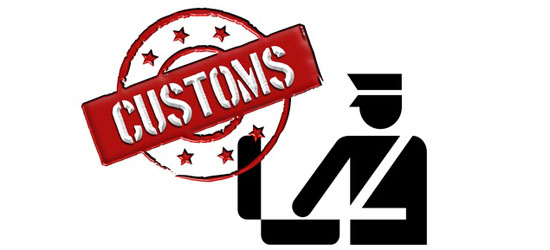
Photo Courtesy of Dreamstime. Article by Jamie Beckman, contributor to Budget Travel.
We love souvenirs as much as you do, and we'd never suggest that you skimp on keepsakes that you'll always treasure (though we'll try to find you bargains whenever we can!). But there are a few no-no's that U.S. customs will confiscate if you try to get them past the border --some for health reasons, others for complex economic and cultural reasons. In the interest of saving you time, money -- and embarrassment! -- here are a few you should be wary of.
Absinthe
Try as you might, seeing the green fairy probably isn't going to happen these days: Modern absinthe is different from the low-quality, toxic sort made with poisonous metal salts associated with hallucinogenic properties back in Vincent van Gogh's day; however, it's still illegal to bring certain kinds of absinthe in from other countries due to lack of regulation. In particular, bottles that claim to contain 10 parts per million or more of the chemical thujone are Food & Drug Administration no-nos. (Trivia: If a bottle says it has a lot of thujone, it probably doesn't -- absinthe makers who emphasize the alcohol's supposed "mind-altering" properties have their eye on taking tourists' money.)
Travel Tip: If you're thirsty for your very own bottle regardless, in addition to double-checking that the booze is "thujone-free," ensure that the stand-alone word "absinthe" or any "psychotropic" image isn't on the bottle. (Rule of thumb: If the label looks like it could double as a Grateful Dead album cover, don't try to bring it on the plane.) To ensure you're getting a quality brand, and not just green food coloring, visit wormwoodsociety.org.
Certain plants (and crafts made from plants)
Gardening enthusiasts, prepare to present any plant item that you want to bring into the States -- even crafts made with straw -- to a customs officer for inspection. You'll need a permit even for innocuous-sounding items like cut flowers with berries attached, nursery stock, and seeds. Other fauna, like "noxious weeds," aren't allowed, period. (Even if some do sound quite pleasant, like apricot cape tulip.)
Travel Tip: To be safe rather than kiss your prized plant goodbye at check-in, apply for a USDA Plant Protection and Quarantine permit online to bring acceptable plants into the states -- or check if they're prohibited. Permits take 30 days or more to process and are good for up to three years.
Ivory (including jewelry made from ivory)
It's safe to assume that you'll need a permit from the U.S. Fish and Wildlife Service to bring any ivory into the country, due to the Endangered Species Act. (Unless the item in question is from a warthog, but, really, who wants that?) You can import an antique ivory item if you have special documentation showing it's more than 100 years old, but thanks to rampant poaching, any object that's younger is generally not allowed.
Travel Tip: If you want to make a jewelry or a trinket haul, but the stuff you want appears to be made from tortoiseshell, ivory, whalebone, or skins, give the U.S. Fish and Wildlife Service a buzz at 800/358-2104 to be sure they're okay to purchase and bring home.
Ancient artifacts
So many items have been stolen from museums and churches that any ancient artifact (like pre-Columbian objects, Native American artifacts, Byzantine items, culturally significant Iraqi property, etc.) requires an export permit -- and a real one at that: There are many fake certificates floating around. The U.S. National Stolen Property Act prevents individuals from legally owning a swiped item, regardless of how many people have since possessed it.
Travel Tip: If you want to bring back a ruin or antique to keep -- not to, for example, exhibit in a museum -- you'll need an export permit from the country you're taking it out of. And even then, you could face U.S. import restrictions, depending on the item and the country. (Your historical find might be considered a "pillage.") Peruse the U.S. State Department's Bureau of Educational and Cultural Affairs's website for information on what's not allowed.
Meat-based products (even soup mix)
Bush meat made from African wildlife and anything imbued with meat products -- like bouillon, soup mixes, etc. -- from most countries could introduce serious pathogens into the U.S. and spread unpleasant conditions like foot-and-mouth disease, African swine fever, mad cow disease, and the avian flu. That goes for canned and dried meats too.
Travel Tip: There are a few countries deemed acceptable to export certain meats from -- scan the USDA's website to make sure.
More From Budget Travel:
World's Most Beautiful Museums
8 Incredible Grand Tours You Can Actually Afford
12 Most Iconic Rivers on Earth
12 Awe-Inspiring American Castles
Want the inside scoop on the hottest travel deals? Sign up for our free e-newsletter and follow us on Twitter, Facebook, and Pinterest.